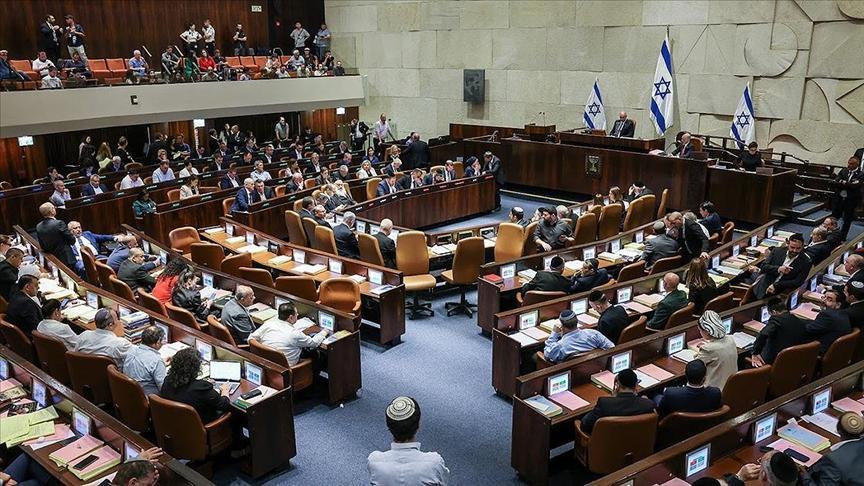
Israel's parliament on Thursday passed a law expanding elected officials' power to appoint judges, defying a years-long movement against Prime Minister Benjamin Netanyahu's contentious judicial reforms that saw massive street protests.
The approval comes as Netanyahu's government, one of the most right-wing in Israel's history, is locked in a standoff with the supreme court after beginning proceedings to dismiss Attorney General Gali Baharav-Miara and announcing the sacking of Ronen Bar, head of the internal security agency.
Critics said the new law was a "nail in the coffin of Israeli democracy," while the opposition swiftly filed a petition with the supreme court challenging the vote, viewing these judicial changes as signs of Netanyahu's authoritarian shift toward an illiberal democracy.
The legislation was approved by a vote of 67 in favor and one against, with the opposition boycotting the early-morning vote. Israel's parliament, the Knesset, has 120 lawmakers.
The overall judicial reform package had sparked one of the largest protest movements in Israel's history in 2023 before being overtaken by the war in Gaza.
According to Justice Minister Yariv Levin, who sponsored the bill, the measure was intended to "restore balance" between the legislative and judicial branches.
In his closing remarks ahead of the vote, Levin slammed the supreme court, saying it had "effectively nullified the Knesset.”
"It has taken for itself the authority to cancel laws and even Basic Laws. This is something unheard of in any democracy in the world," said Levin, the key architect of the judicial changes.
Currently, judges, including supreme court justices, are selected by a nine-member committee comprising judges, lawmakers, and bar association representatives, under the justice minister's supervision.
Under the new law, which would take effect at the start of the next legislative term, the committee would still have nine members: Three supreme court judges, the justice minister and another minister, one coalition lawmaker, one opposition lawmaker, and two public representatives, one appointed by the majority and the other by the opposition.